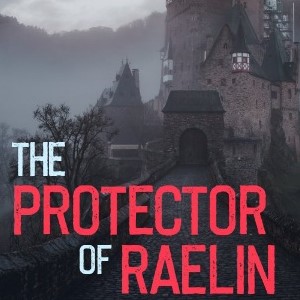It was a cold, dreary day in between the last snowfall of winter and the first budding of spring. Patches of melting snow were scattered across the muddy ground. The sun had barely risen in the sky. It seemed that it tried it's best to get out from behind the smattering of clouds that still hung in the dull grayness above from last night's snow flurries.
People bustled about, hurrying to their various destinations. Most of them with heads down, faces muffled in scarves and taking big, awkward hops and jumps to avoid the biggest mud puddles. Even so, mud clung to every surface from the knee down, and on most children from the feet up.
It was almost foreboding how silent it was on that street, even with the sucking sound of the mud unwilling to part with any boot or wagon wheel that came into contact with it. There were also a few muffled voices trying to converse through their many layers of protection from the cold. This subdued quiet did not have much to do with the cold or the mud, though they certainly were a factor. It had much more to do with the war.
Yes, the war. It had gone on long enough that most people couldn't remember how it had been before, and still more longed for, but could not see, the end of it. The majority of people who wished it to end were like these. Trudging down a muddy street. Heads down. Seeming to have an enormous burden placed upon their relatively small shoulders by an unseen, uncaring, and malicious tormentor.
I name this tormentor as taxes. A nation needs taxes to fund a war, but who is oppressed with these astronomical 'dues'? The lower class. People who lived in these sprawling cities where all anybody did all day was work, work, and still more work.
That was what I, Claresa, was doing on that particular morning. I had set out early to the mill to buy a sack of flour needed for the day's baking.
I had not slept well the night before. I never did in the winter months. I would often lie awake, shivering almost violently, until my body heat made the blankets warm. But then with all my tossing and turning in my sleep to find a comfortable position, I would make my blankets fall off the bed, or expose some part of myself to the chilled air. I would wake up shivering and the whole process would begin again.
That morning I had woken up for the third time and decided it was hopeless. That I should be doing something productive instead of lay there like a lump, trying to summon sleep with only my will. Which, as you would know if you ever tried it, hardly ever works.
So I had gotten dressed in nearly every particle of clothing I owned, as was usual in the chilling winter, and went downstairs to the bakery. Renai was already up, stoking all the fires for the many ovens.
I often wondered, when I'd first come to work for her, how it was that she could stay up so late, tidying up the bakery and making sure every last crumb was accounted for and ready to be sold, then get up so early the next morning to prepare for the coming sale day, and still remain functional in body and mind.
Of course, I didn't ask her this in the beginning, because I didn't know her temperament yet, or what I could ask her without making her angry and decide to fire me. Later I knew that I had no need to worry. Renai was the kindest and dearest person I have ever met, and she would not fly into a rage on account of something so trivial.
I, however, found out the answer on my own. I realized that in between customers and batches of baking, she would settle into her rocking chair and doze. When a customer came in, or when some internal reckoning told her she needed to check on a pie or other baked good, she would rub her eyes, perhaps yawn, and jump up wide awake and ready to do whatever it was that called for her attention.
I marvel at this even now. I don't think that I could fare so well with such small and sporadic bits of shut-eye.
But Renai was always cheery no matter what. She had been that morning, bustling about, tending the fires, humming and occasionally giving lyrics to her tunes. I wasn't entirely sure, but I had a hunch that she made up the songs as she went along, because they all seemed to relate to whatever it was she was doing at the moment. That morning it was:
"Tend the fire, tend the coals,
clean the pots and score the bowls.
If you don't the bread will mold,
and you'll be left with ashes cold."
Then would be a long bit of humming where she seemed to experiment with going higher or lower, and adding more thrills and notes to her little song. I loved her little musical outbursts.
I had stepped of the last stair as Renai turned around from placing a few loaves of bread into an oven to bake. She was middle-aged, a bit on the portly side, but what do you expect when you work in a bakery?
"Well, aren't you up early," she had observed, giving me a quick smile, then turning back to a bowl of dough she was mixing.
"I thought I had better get that flour," I answered, stepping out of the kitchen and into the front of the building, which housed the shop. I would travel to the mill, which was a good ways away, and return with the purchased flour. "I want to be there before everybody else."
"Don't stand idle in the cold too long," Renai called to me, partly in earnest, but mostly in jest. She knew that I had a constant but mild cold throughout the winter. If I were to expose myself I would become extremely ill in no time at all.
She also knew that I was not idle in any way, shape, or form. She said that I was a go-doer, meaning that if there was something to be done, I would go and do it with no delay. I always just thought that the sooner I get it done, the sooner I don't have to do it anymore. I don't really know if that is a good thing or not.
I thanked Renai for the advice, opened the door, and went down the wooden steps, making my way onto the street to the mill in the bitter, early-morning cold. That had been a couple hours earlier that day.
On the return journey, I trudged along with everyone else. I watched the people around me shuffle and dodge along. None raised their head or a hand in greeting to me, and I did not offer either, though I did recognize a few faces that came into the bakery regularly. This was not out of the ordinary, but it did make me feel self-conscious.
I often wished I could somehow make myself invisible. At least then people would have a real reason not to notice me. And I would not feel pressured to be the first to acknowledge or strike up a conversation with someone. But it was not so, and I must trudge along alone, yet in a crush of downcast bodies on their way to their day's drudgery.
I was one of the luckier ones. I worked inside, where ovens and fires went all day long. The only real unpleasantness with working in a bakery was the amount of time and energy it took to fill all the orders, the occasional burnt hand from carelessness, and the frequent opening and closing of the front door which let in the cold air. But that last problem was only in the winter.
Here in Splethantown, which was situated almost in the very middle of the country of Halet, the summers were mild and pleasant, so working in a bakery was only as unpleasant as how hot you ran your ovens. I thought about those warm ovens now, and my aching shoulders and back.
"News, news, news!" bellowed a voice down the crowded street.











Comments (0)
See all